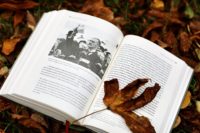
(descriptive essay)
Study is the foundation upon which education and personal growth rest. It is more than a routine or obligation; it is an art form that requires discipline, creativity, and purpose. This essay explores the concept of studying effectively, delving into its techniques, challenges, and ultimate rewards.
- understanding the purpose
Studying is often misunderstood as merely memorizing facts. In reality, its purpose goes beyond rote learning. Effective study involves critical thinking, problem-solving, and the application of knowledge to real-world situations. The aim is not only to achieve high grades, but to foster curiosity and develop a lifelong love for learning.
- creating the right environment
An optimal study environment is key to effective learning. A quiet, well-lit space free from distractions enhances focus. The organization of materials, such as textbooks, notes, and digital tools, further supports efficiency. For instance, many students find that using color-coded notes or digital apps helps them retain information better.
Several proven techniques make studying more effective. Active learning, such as summarizing information or teaching others, engages the brain more deeply than passive reading. Similarly, breaking study sessions into shorter intervals—known as the Pomodoro technique—helps maintain focus and prevents burnout.
Additionally, incorporating a mix of methods like reading, writing, and discussing the material caters to different learning styles and reinforces understanding. Visual learners may benefit from mind maps, while auditory learners might find success in recording and listening to their notes.
- challenges and overcoming them
Despite its importance, studying is not without challenges. Procrastination, lack of motivation, and information overload are common hurdles. To overcome these, setting specific goals and establishing a routine can provide structure. For example, starting with smaller, manageable tasks builds momentum and confidence.
Stress and fatigue are other barriers that can hinder progress. Incorporating regular breaks, physical activity, and mindfulness practices, such as meditation, can help maintain mental well-being. Students should also remember that asking for help—whether from teachers, peers, or online resources—is a sign of strength, not weakness.
- the rewards of effective study
The rewards of studying effectively extend far beyond the classroom. It fosters self-discipline, time management, and a deeper understanding of the world. These skills are invaluable in both personal and professional life. Moreover, the satisfaction of mastering a subject or solving a difficult problem is a powerful motivator that drives further learning.
The art of studying is not about perfection but progress. It requires commitment, adaptability, and a willingness to experiment with different strategies. By approaching study as a dynamic and rewarding process, anyone can unlock their potential and embark on a journey of continuous growth and discovery.


























































Залишити відповідь